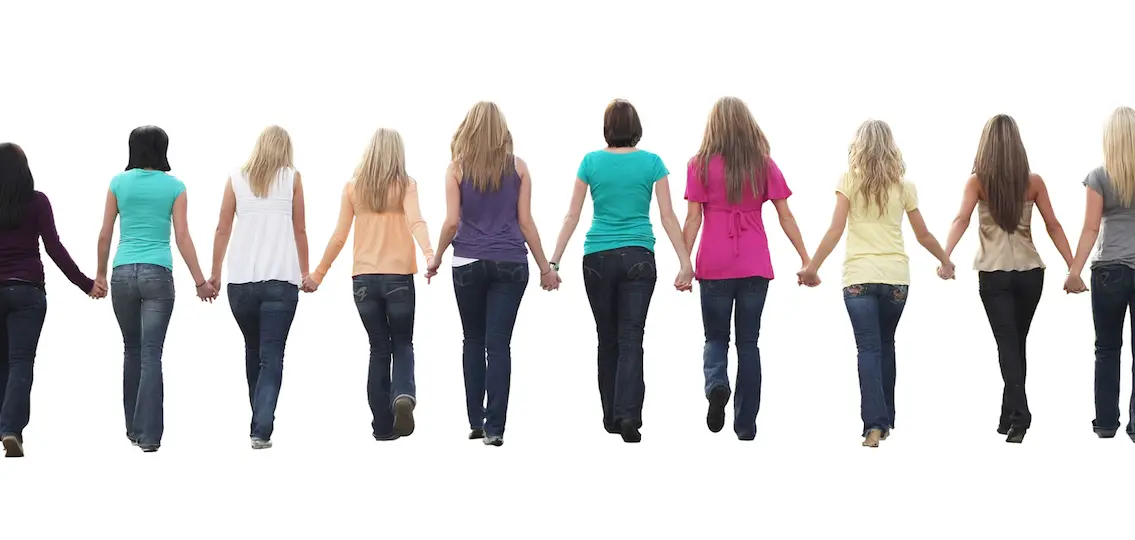What kind of mother is best for her kids? A happy, healthy mom, says Suniya Luthar, a mom of two and a professor of psychology at Arizona State University. Luthar is also the founder and executive director at Authentic Connections, a non-profit group committed to maximizing individuals’ personal well-being and resilience. Her recent scientific focus has been on motherhood: what best helps women negotiate the challenges of this life-transforming role.

Q: You focus on vulnerability and resilience, particularly about how it hits youth in poverty, children and families with mental illness, and teens in upper middle-class families. Tell us about that.
Luthar: All three are conditions of significant adversity, and our question is, what are the things that help these kids do well?
Qualitatively, obviously these situations are different: being in an inner city setting prone to violence; having a mom or dad with depression or alcoholism; or being in a very high pressure, highly competitive setting. But the end result is the same—that you end up being in a state of chronic and high stress. Resilience basically means doing well in the face of adversity—but we’re not talking about personal strength or any personality trait. So what are the factors that help them do well?
Last year, my colleague Nancy Eisenberg and I published a collection of papers in the journal Child Development, where we had 11 sets of experts who each reviewed the literature for the at-risk group that is their area of expertise. For example, one had single mothers, another had moms contending with depressive illness, one had early childhood in poverty.
Q: What did you find?
Luthar: The single most important common theme was the wellbeing of the primary caregiver, who’s usually the mom. It makes sense that, if a child is to be fed and nourished and nurtured, the person who is charged with doing that must be fed. That is where our primary focus needs to be, ensuring the wellbeing of the primary caregiver, and that happens in the same way it works for kids.
Just as kids need unconditional acceptance to flourish in the face of adversity or otherwise, so do we, those who must provide this nourishment. That is the biggest take-home message.
Q: How does that play out?
Luthar: People always tell me, “I see what you’re saying; mothers need to take better care of themselves,” and I say, that is absolutely not what I’m saying. I don’t want to add one more thing to our already very long list. What I’m saying is, prioritize being taken care of. What’s the difference between the two? It is understanding that you need that same nurturance and softness and sweetness; you must have it, and you must prioritize getting it. In our role as women—competent, strong, successful, busy—we are so not used to thinking of ourselves as needing that gentleness and sweetness.
Q: You’ve identified four factors that can make a difference for moms. Can you talk about them?
Luthar: I’m surprised by the number of times we have found these four things to be significantly related to outcomes of moms, even after considering other factors, like quality of marriages and invisible labor in the home.
- Experiencing unconditional acceptance is the first thing.
- The second is comfort—the anticipation of comfort during stress; people are there when I’m troubled.
- Number three is authenticity—just being able to be who I am with people in my everyday setting. If you think about it, it takes a lot of effort to hide, so if you’re working on hiding who you really are, obviously that’s problematic.
- The fourth was satisfaction with friendships. It wasn’t even the quality of friendship; it was frequency of being with friends. These are what we’re calling the big four.
Q: What would you have changed about your parenting based on what you now know from your research?
Luthar: I’m very happy to say that both my kids say, “No mom, you were never harsh with us; you were never critical.” But there were times when I was quite depressed. I went through a difficult divorce, and I was down for a while, and that is very hard for a child to watch.
It just was a bad time. It’s not so much that I would have changed my parenting, but that I wish I had done more to ensure I had that village around me. Not so much to take care of my kids, but to have that tribe of what we call your go-to committee.
Don’t wait until middle school, don’t wait until the divorce—do it now. When you’re in the midst of a bad patch, you certainly don’t have the time or energy to start cultivating that tribe of go-to people.

But it’s never too late to work on getting a band of authentic connections to support you. You have this group of kind, loving, successful women just like you. You text them and say, “I’m falling into my yelling mode,” or “into my highly depressed mode,” and they’re there to help you.




